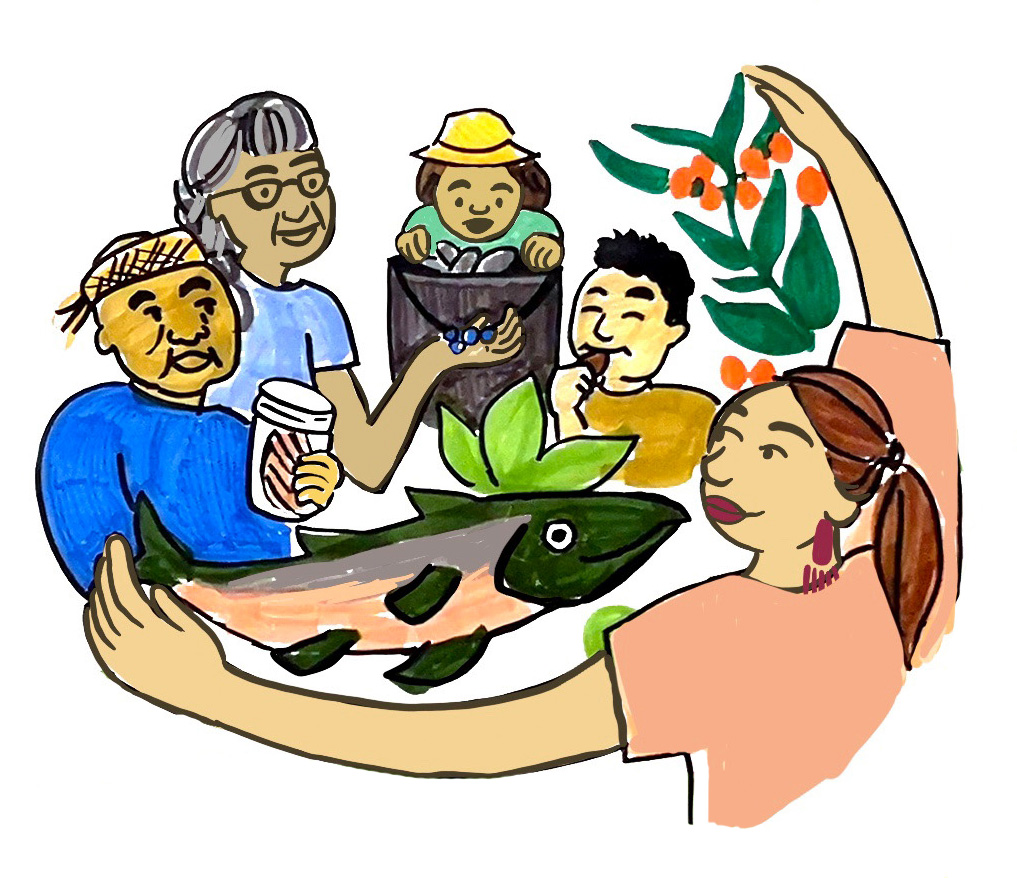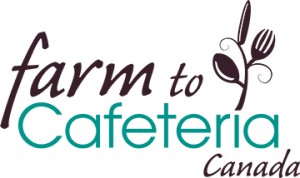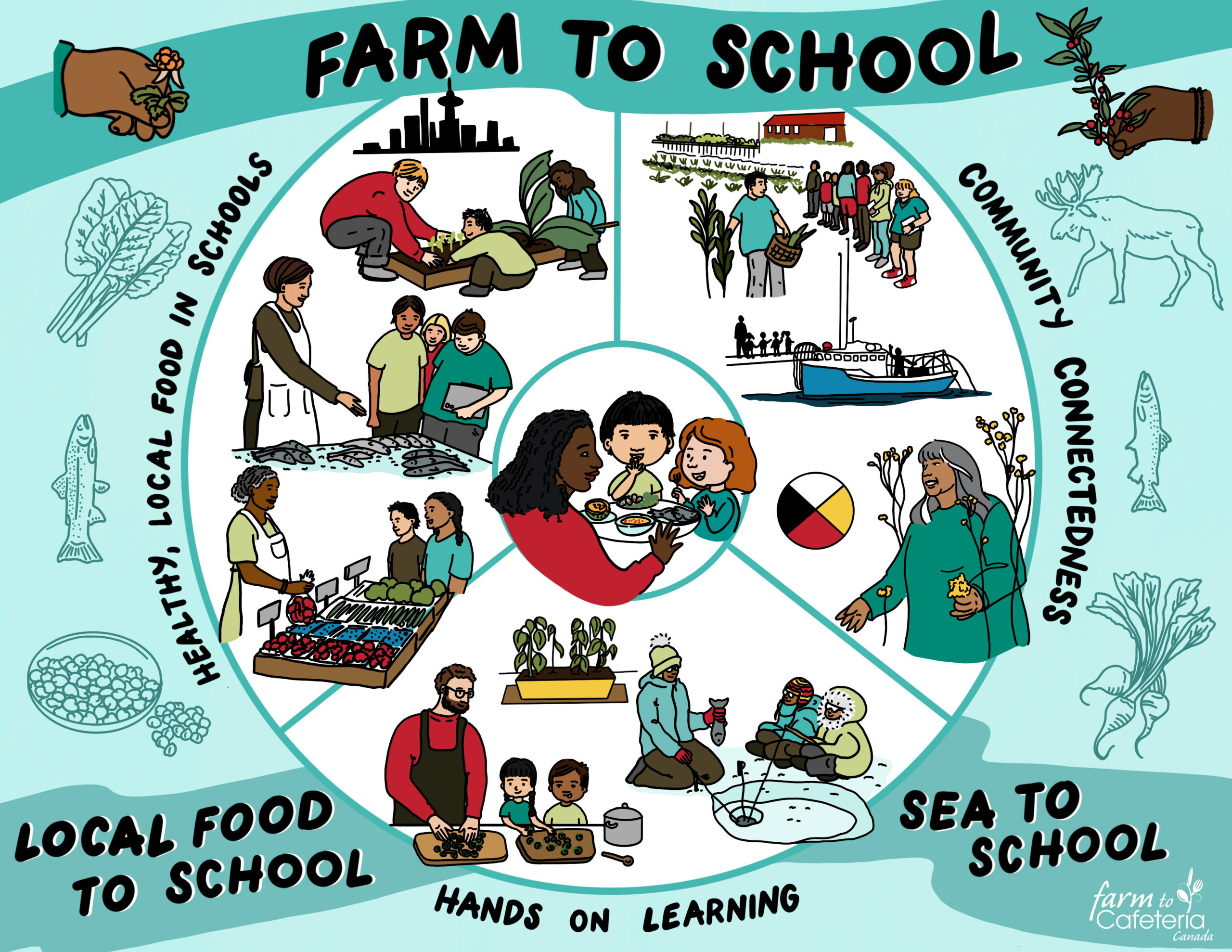
About Nourishing Relations
Farm to Cafeteria Canada (F2CC) supports school communities to foster vibrant school food systems that engage students in eating, preparing, harvesting, growing, and embracing healthy local food. Through these activities students connect with their broader communities and develop food literacy, all while strengthening regional food systems. F2CC typically refers to this as the “farm to school” or “local food to school” approach.
This approach can complement the work of those who are bringing traditional Indigenous foodways into schools. F2CC has funded many projects where, from remote communities to urban centres, educators including Elders and Knowledge Keepers are teaching about food and traditional food systems and are incorporating traditional foods, practices and traditions throughout the school day. See Gudangaay Tlaats’gaa Naay Secondary School, Masset BC’s story and learn about other schools that are integrating Indigenous foodways.
We are proud of what we have enabled so far; however, we know that we need to do much more to better honour the Indigenous peoples, histories and lands on which we all live today.
F2CC has been working within our own team to envision how our mandate, operations and institution can better include, reflect, honour and amplify Indigenous voices, perspectives, values, and ways of knowing. We are doing this with the spirit of nourishing relations.
About Farm to Cafeteria Canada
 Farm to Cafeteria Canada (F2CC) is a pan-Canadian partnership-based organization whose vision is vibrant and sustainable regional food systems that support the health of people, place and planet. Our organization is built upon relationships and, together with our partners, we collaborate to educate, build capacity, strengthen partnerships, and influence policy to bring local, healthy, and sustainable foods to public spaces. F2CC is proud to be a leader in the national farm to school movement, connecting children and youth to their food, their environments and their communities.
Farm to Cafeteria Canada (F2CC) is a pan-Canadian partnership-based organization whose vision is vibrant and sustainable regional food systems that support the health of people, place and planet. Our organization is built upon relationships and, together with our partners, we collaborate to educate, build capacity, strengthen partnerships, and influence policy to bring local, healthy, and sustainable foods to public spaces. F2CC is proud to be a leader in the national farm to school movement, connecting children and youth to their food, their environments and their communities.
Our efforts
F2CC is a settler-led organization. Since 2011 when we were established, F2CC has committed to recognize and support Indigenous food systems in our funded projects and food literacy activities. To date, through the Farm to School: Canada Digs In! initiative, we have given grants of up to $10,000 to 166 schools in Canada, of which 35 have self-identified as Indigenous or as having strong connections to Indigenous communities.
In February and March 2021 we held three virtual sharing circles to hear from Indigenous school communities and/or those who work directly with Indigenous school communities about their vision for food sovereignty projects and what barriers exist to reaching these visions, as well as to provide a platform for Indigenous school communities to connect and learn from one another.
From the three virtual sharing circles, F2CC listened to the recommendations from the meetings to hire an Indigenous Lead. With this new position, F2CC will continue to work towards including Indigenous perspective, values and ways of knowing.
In September 2021 we welcomed Christina Smith to the role of Indigenous Lead: Local Food to School. The Indigenous Lead works as a member of our national team to enable networking and relationship building, storytelling, connection and funding so that people who are looking to integrate Indigenous food ways and healthy, local foods into their school communities have more resources and connections to do so. Listed below are some of the responsibilities of the position:
- Promoting F2CC’s grant program information to Indigenous schools and organizations
- Support the coordination of the Indigenous School Food Working Group
- Informing First Nations, Inuit and Métis organizations of the work to seek federal investments in school food programs across the country
- Gathering and sharing school food and/or land-based learning stories
- Creating opportunities for networking and sharing
About Local Food to School
Farm to Cafeteria Canada works to foster what we often refer to as the “Farm to School” approach.
This term refers to the idea of bringing healthy, local food into schools, and providing students with hands-on learning opportunities that foster food literacy, all while strengthening the local food system and enhancing school and community connectedness.
However, we know that farms are not a reality in most Indigenous communities and that the history of farms in colonialism has left a legacy of trauma.
Farm to Cafeteria Canada has begun to use the term “Local Food to School”, which may be used interchangeably with Farm to School to reflect a broader range of food systems unique to each community. Within this definition, “local food” can include seafood, game and other “wild” foods, that connect schools with fishers, elders and other knowledge keepers who can harvest and prepare these foods safely and in a culturally meaningful manner.
The following visual has been developed to celebrate and amplify the diversity of ways that local food to school takes shape in different communities, and to show how it involves the whole local food system.


Farm to Cafeteria Canada’s team and project partners acknowledge that we live, work and play on the ancestral lands of the diverse First Nations, Inuit and Métis people of what we now call Canada. Farm to Cafeteria Canada is committed to reflecting, honouring and amplifying Indigenous voices, perspectives and values in our work. To learn the traditional territories on which our individual team members are located, please visit our team page.
